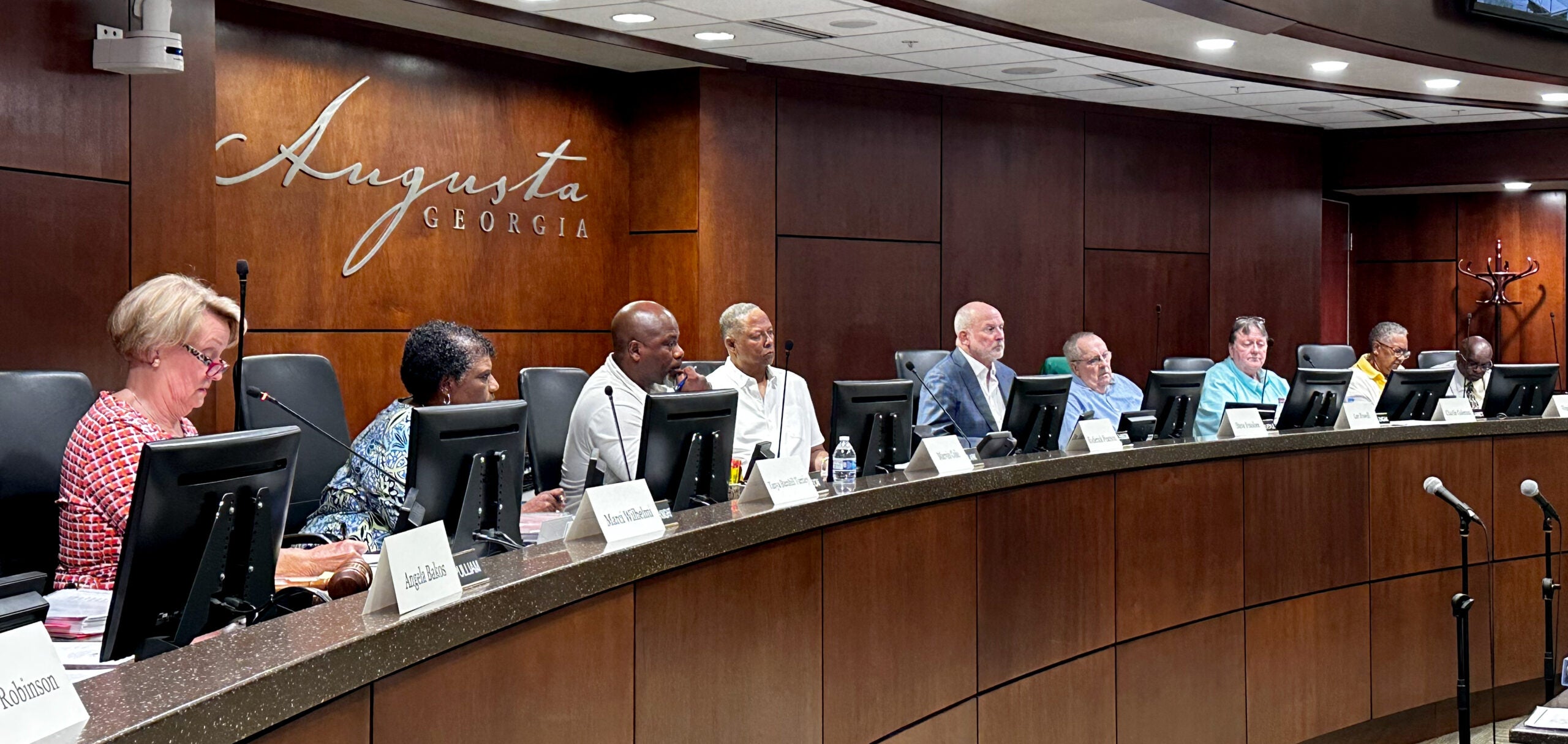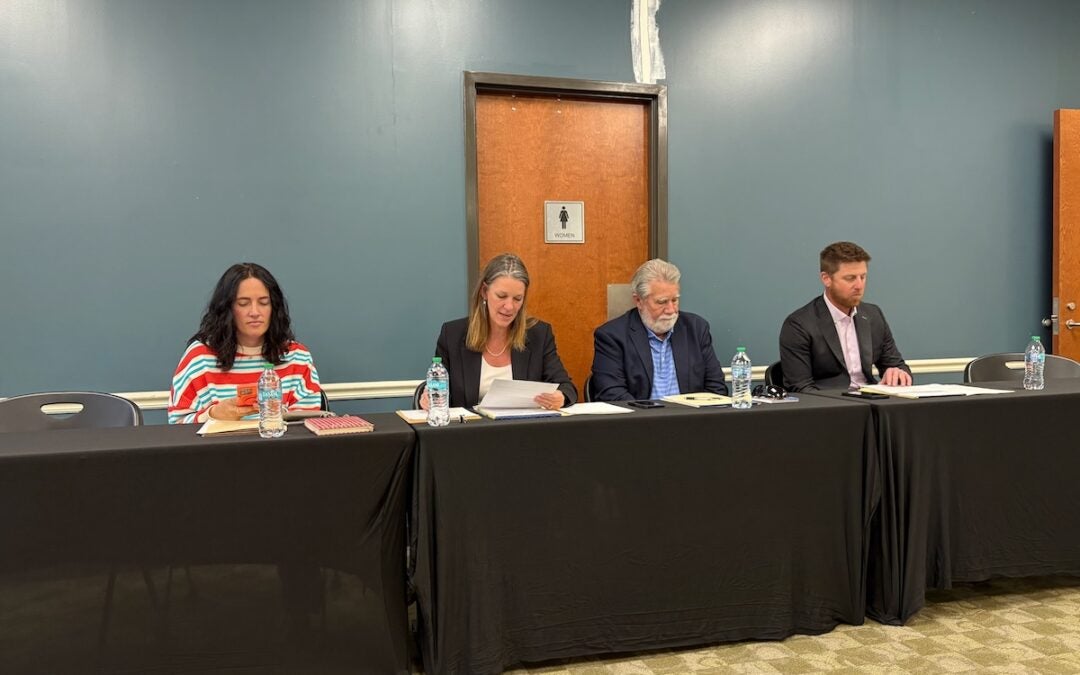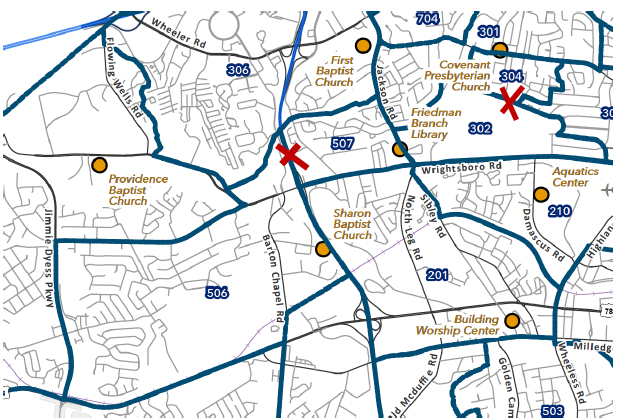Results of an informal survey of charter review committee members and a handful of others revealed a strong inclination to increase the mayor’s authority.
Rex Facer II from the Carl Vinson Institute of Government presented an overview of survey findings at the committee’s fifth meeting Thursday. Augusta hired the University of Georgia group to facilitate a review of Augusta’s charter.
While many sub-themes emerged, the No. 1 topic in survey answers was the Augusta mayor’s authority, which was mentioned some 47 different times, Facer said.
The actual responses to approximately 15 surveys returned, obtained Thursday by The Augusta Press, included numerous ways to increase the authority of Augusta’s mayor. The mayor is limited by the original charter to serving largely as a figurehead and tiebreaker. Mayor Garnett Johnson increased his clout slightly last year by winning voter approval to give the mayor a vote on all commission actions.
To questions about how to change Augusta’s charter, responses included giving the mayor numerous oversight roles, with several mentioned more than once. They included:
- The ability to hire and fire department heads
- Making the city administrator or city manager a direct report to the mayor
- Keeping the mayor’s ability to vote on all commission actions
- Full authority over the city’s budget
- Final authority over all city business
- Responsibility for annual internal and external audits
- Responsibility for performance reviews of department heads
- Making the county attorney and administrator solely report to the mayor
- Creating a community review committee
- Oversight of revenue-generating authorities such as the Augusta, Georgia Land Bank Authority, and board appointments
- Removing the commission’s ability to override mayoral employment decisions
- Approval of all contracts, financial reports and emergency spending
Not all responses showed support. One asked to hear the pros and cons of different government structures. Another asked to remove the mayor’s vote on all commission actions.
“I am concerned that the charter review committee may be biased toward fulfilling the current administration’s objectives, rather than crafting a charter that prioritizes long-term governance,” said another. “Additionally, I worry that external influences may be exerting undue pressure on committee members, potentially steering the process toward a hidden agenda.”
The unsigned responses, submitted by committee members at their last meeting May 15, weren’t all from committee members. Some members did not submit a response, while some committee members distributed the surveys to others.
The second-most addressed topic among the responses was the authority of the Augusta Commission, which was mentioned 46 times, Facer said. Most suggested ways to curb it, though not all did. The responses included
- Create an attendance policy for commissioners
- Require written excuses for all abstentions
- Reduce commissioner pay by 2% for each absence
- Create sanctions for unruly or unethical behavior by commissioners
- Replace the 10-member commission with a five-member advisory council
- Reduce the number of commissioners
- Eliminate the two super districts
- Increase the number of commissioners to 12 or add more commission districts
- Give the commission and mayor an office of constituent services
- Require eight commissioners present to conduct business and seven to pass a measure
- Ban commissioners from interfering in daily city operations
Other lesser-addressed topics included the role of a city administrator or manager, rules for board appointments and improving oversight of city departments, according to Facer.
According to one response, public safety ought to be centralized and unified under the Richmond County Sheriff. Related services such as E-911, the Richmond County Marshal’s Office and Codes Enforcement ought to be consolidated where services are “duplicative,” it said.
In other committee action
In other committee business Thursday, District 1 has a new representative, Sheffie Robinson, replacing Paine College President Lester McCorn, who resigned due to increased college duties. Robinson, an Augusta native, said she runs a company focused on economic and workforce development, including student career support.
Former commissioners Moses Todd and Ben Hasan addressed the committee. Todd requested an oath of office and the Pledge of Allegiance at meetings; Chairwoman Marcie Wilhelmi said oaths will begin at the next meeting June 12. Hasan recommended holding a voter referendum on charter changes in November 2026, coinciding with national midterms. Some committee members are aiming for a May 2026 vote, which would align with local elections but compress the revision period.
The committee delayed removing language from the 174-page draft charter, including outdated and redundant items. Interim General Counsel Jim Plunkett advised waiting for a redlined version to ensure transparency. One item listed for removal was the charter’s creation of a city law office.
On Robinson’s motion, public comment time was cut from five to three minutes for each speaker, passing 9-1, with Lonnie Wimberly opposed and Angela Bakos absent.
Two subcommittees were formed. The finance subcommittee, chaired by Lee Powell with vice chair Tanya Barnhill-Turnley, includes members Marvin Cole, Bakos and Charlie Coleman, and will review spending-related items such as stormwater fees, insurance and audits. A “form of government” subcommittee, led by Steve Foushee with vice chair Wimberly, includes Virginia Cody, Roderick Pearson and Robinson.
Charter Review Committee Responses by Susan McCord on Scribd










